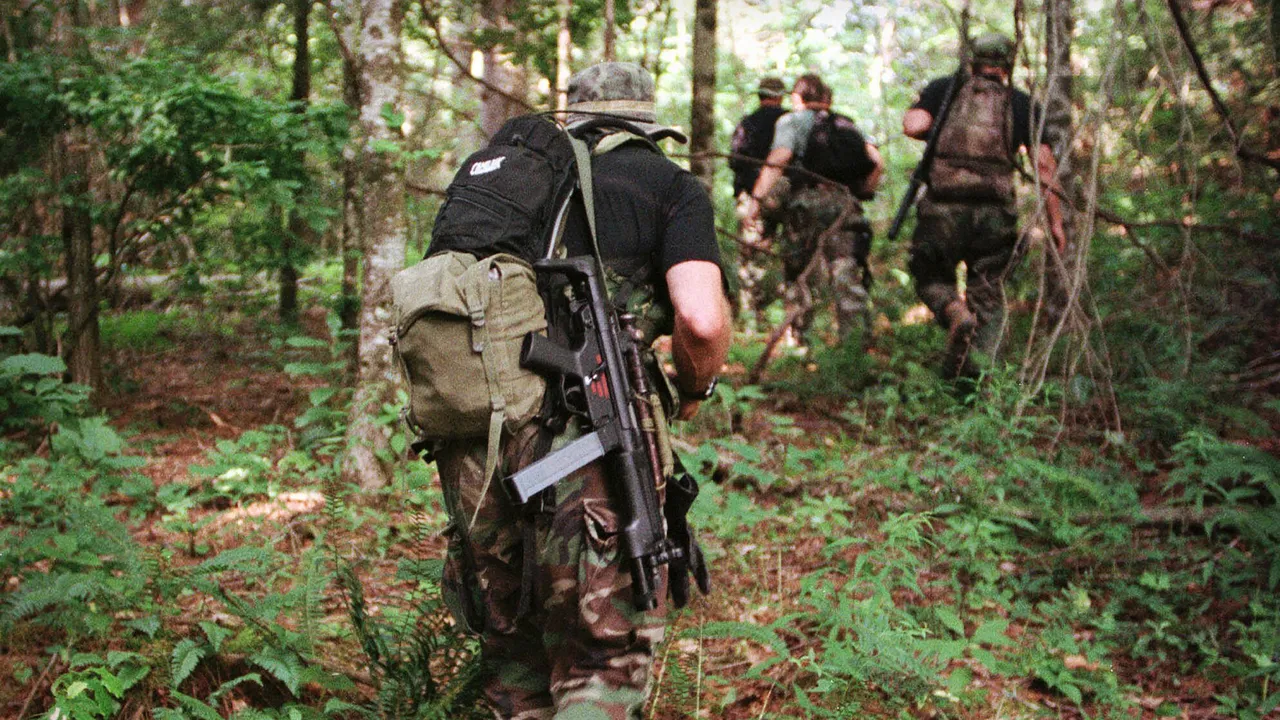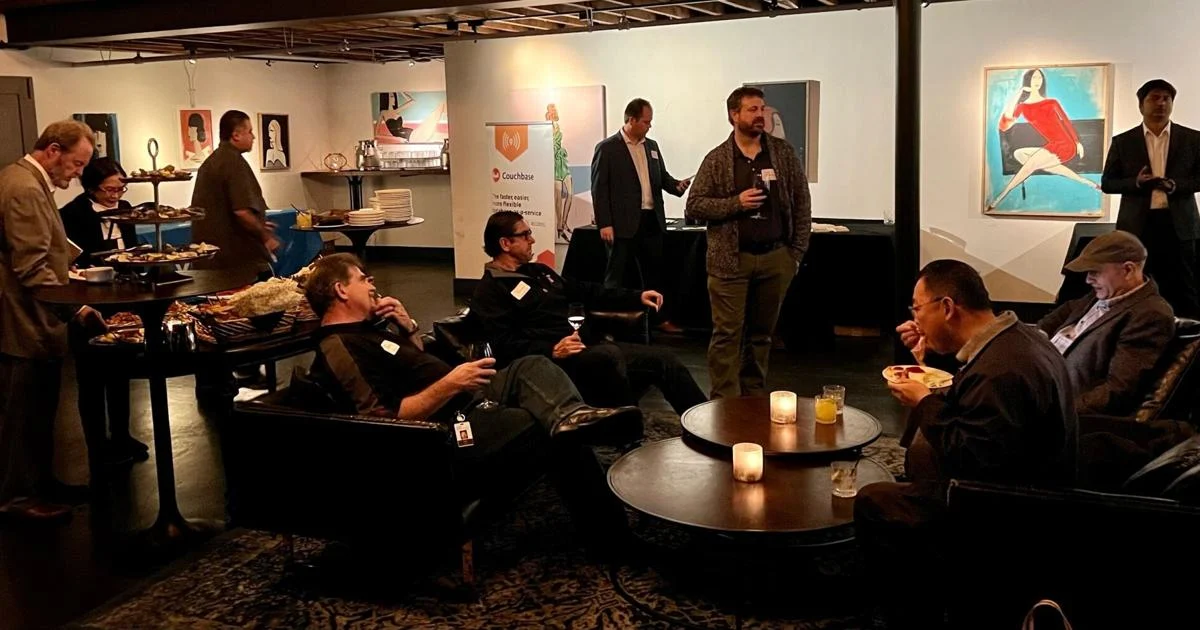Copyright The New Yorker

“I knew that America needed a nationalist-conservative revolution,” Eric Robert Rudolph wrote twenty years ago. “Unlike the majority of Patriots and conservatives who were content to see America gradually collapse, I gravitated toward the militant minority who wanted to confront the liberal regime with force. At the time, it was irrelevant to me which particular issue—taxes, abortion, gun rights—ended up being the spark that ignited this revolution. This was a war between two entirely different world views.” Rudolph was responsible for four bombings, which caused multiple deaths and scores of injuries. I covered his crimes, beginning with the bombing of the Atlanta Olympics, in July of 1996. Two years later, once he was identified as a suspect, I followed a manhunt for him across the Appalachian Mountains, which became one of the largest of the twentieth century. As a young man in the nineties, I was shocked by his callous disregard for his victims’ lives, shocked more by the sympathy that he received in some circles. During the search, a shooter fired into the Murphy, North Carolina, command post where federal agents were coördinating the hunt for Rudolph. A million-dollar reward failed to move people to help. He had become a folk hero to some, especially around his home town in western North Carolina. “Run, Rudolph, Run” was plastered on T-shirts and mugs and bumper stickers. A songwriter put that slogan to music in an unironic tune that began: He never meant to hurt no one, He wouldn’t harm a fly, But the Lord knows Eric Rudolph didn’t want that man to die. As a restaurant owner in that area told one federal agent, “A lot of us up here don’t think what he did was wrong.” At the time, I thought that Rudolph’s defenders were few and fringe, and on the way out. Or limited to a particular geography in the Carolina hills. I did not understand how many others shared his beliefs. Today, I hear echoes of his call for revolution when Senator Josh Hawley and Representative Marjorie Taylor Greene boast of their Christian nationalism, and when masked men snatch people based on their skin color from city streets. Stephen Miller’s white-nationalist ideals don’t just have an audience; they have the backing of the President of the United States. Americans have condemned the attempted assassination last year of Donald Trump, the arson at the Pennsylvania governor’s mansion in April, and the fatal attacks on Minnesota lawmakers and their families this summer. But, increasingly, events that should appall and unite America against violence instead fuel an intensifying partisanship. The murder of Charlie Kirk has pushed this country to a critical point, where many respond to terrorists by echoing their language of war. It was a big deal for the American South when the Summer Olympics ventured below the Mason-Dixon Line for the hundredth anniversary of the modern Games. The International Olympic Committee picked Atlanta, in something of a stunner, over Athens, Greece. In an era when progressive Southern men held America’s highest offices, and when much of the region was eager to prove that it had more to offer than bluegrass and barbecue, the Olympics were to be a symbol not of what the South used to be but of what it could become. When the world tuned in to watch the opening ceremony, it saw Muhammad Ali, who was fighting Parkinson’s at the time, light the Olympic cauldron. A Black man from the South who had once been shunned in that part of the world. I could not wipe the stupid smile off my face. Atlanta, to its credit, shared a bit of its glory. Cities across the South held events, and revelled in them. Preliminary soccer matches played out in stadiums from Miami to Washington, D.C., and in my home town of Birmingham, Alabama. It seemed from my vantage point in Birmingham—a city three decades removed from segregation enforced by dogs, bombs, and fire hoses—that the South had begun to rise above its past. And then, early on the eighth day of the Games, Atlanta police got a call. “There is a bomb in Centennial Park,” a muffled voice said. “You have thirty minutes.” A pipe bomb—federal agents would call it the biggest they’d ever seen—exploded twenty minutes later, in a park built to promote peace. More than a hundred people were injured. A woman named Alice Hawthorne was shot through with a nail and died beside her daughter. A Turkish cameraman named Melih Uzunyol had a heart attack and died. And as federal agents and local police wrongly focussed on Richard Jewell, a security guard who had spotted the suspicious package and should have been hailed as a hero, the real bomber disappeared. The F.B.I. analyzed nails and bomb components and thousands of photographs. There was little to go on. Federal agents found one blurry photo of a man who they thought was their suspect. NASA enhanced it, with the space-age technology of the day, but it was still unrecognizable, a grainy blob. “We had a mock wanted poster that just said, ‘Looking for Blob Man,’ ” David Nahmias, then an Atlanta prosecutor and later the chief justice of the Georgia Supreme Court, recalled. When my colleagues and I began putting together a podcast on Eric Rudolph and his part in the wave of white-male rage that has washed across this land, we came to think of that Blob Man as more than a photograph or a piece of dubious evidence. It was a metaphor for the anger of the Rudolphs and Timothy McVeighs. But how does one get caught up in such resentment, so as to believe that destruction leads to salvation? Travis McAdam, who has long studied militia movements, currently for the Southern Poverty Law Center, likened the forces of radicalization to a great funnel cloud. The wide end spins way up in the sky, drawing in people for a lot of different reasons: gun or property rights, or immigration, or abortion, or taxes, or vaccines, or the Jeffrey Epstein files, or Hunter Biden’s laptop. “A lot of people hang out there for a while and then spin back into their daily lives and take some of these ideas with them,” McAdam said. “But others are sucked down into the funnel, adopting conspiracy theories that change how they see the world, and their place in it.” Rudolph’s funnel cloud surrounded him from the start. As a child, he spent time with a family friend named Tom Branham, a doomsday prepper who encouraged him to read books such as the antisemitic text “Imperium.” As a teen-ager, Rudolph was befriended by a leader of the Christian Identity movement named Nord Davis, who called for guerrilla warfare against gay people and abortion providers. When Rudolph was eighteen, he spent time in Missouri with a preacher named Dan Gayman, who railed that Jews are the spawn of Satan, that people of color ascended from the mud. Rudolph studied the Ruby Ridge standoff, the siege at Waco, and the Oklahoma City bombing. In early 1996, before the Olympic bombing, he let his family believe that he was going west. Instead, he moved closer to Murphy, North Carolina, where he planned his attack. In January, 1997, six months after the Olympic bombing, and three months after Richard Jewell was officially cleared by the Feds, Rudolph set off two bombs at an abortion clinic on the north side of Atlanta. “As the I.R.A. learned many years ago, you have a first bomb that’s designed to bring first responders into an area and a second bomb to kill those responders,” Mike Whisonant, a federal prosecutor who later led cases against Rudolph, said. The next month, Rudolph struck again at the Otherside Lounge, a lesbian night club in Atlanta. A young woman named Memrie Creswell was there, celebrating a friend’s birthday, when the first blast went off. A four-inch nail shot through the back of her arm and out through her shoulder. She would have died, investigators told her, if she had not stood up just a moment before to tuck in her shirt. Creswell has spent decades trying to understand the blind fury that would drive someone to blow up strangers. “What he doesn’t realize is, even though I have a certain life style that he might not like, I’m conservative,” Cresswell said. “He might soften his heart to certain people if he just got to know people.” on several occasions, Rudolph wrote letters to news outlets claiming responsibility for his attacks. He included the numbers 4-19-93, or April 19, 1993—the final day of the siege at Waco. He signed them “The Army of God.” The Army of God is a rabidly anti-abortion group that encourages acts of violence. It is an amorphous thing, by intent, with little more than a glitchy website to prove its existence. It’s still unclear if Rudolph worked in league with the Army of God, or if they simply shared a goal. But, since he pleaded guilty to four bombings in 2005 and began four consecutive life sentences, the Army of God website has held him up as a martyr, an “anti-abortion prisoner.” It has featured Rudolph’s manifesto and a 2018 screed called “A Time for War,” in which he argues that Christian militancy is the only thing that can save Western civilization. Rudolph may not be a household name these days, but he is talked about reverently by extremists on online forums, according to Rachael Fugardi, a research analyst for the S.P.L.C. who monitors such groups. His name is used as a shorthand for terrorist attacks, she said, such as when posters called for someone to “do a Rudolph” at the 2024 Olympics. Even from prison, Rudolph has continued to write about race, abortion, and his idea of a woman’s place. But he has also engaged with the far right’s most recent preoccupations, writing a novel that has a Christian-warrior hero and a transgender villain. “He’s not just reflecting these kinds of changes,” Carol Mason, a professor of gender and women’s studies at the University of Kentucky who has examined right-wing violence, said. “He is promoting them and wanting to be an influencer, too.” Today’s America is starting to look like the one Eric Rudolph envisioned. On the first day of his second term, President Trump pardoned fifteen hundred people who had stormed the U.S. Capitol, many of them linked to extremist groups. He pardoned almost two dozen people who had been convicted of committing crimes at abortion clinics, and the F.B.I. almost immediately began to drop investigations into threats against clinics, such as a bomb threat at A Preferred Women’s Health Center in Charlotte. The issues—taxes, abortion, gun rights, gay marriage, trans athletes, immigrants, insurance C.E.O.s, billionaires, Christian schools, the war in Gaza, the Fed, Confederate monuments, the white majority, I.V.F.—are but sparks, as Rudolph has said. Those sparks have found tinder to burn hot, and the government itself is stoking the flames. The U.S. military is reportedly considering exploiting anger over Charlie Kirk’s death to turn his political group, Turning Point USA, into a force to recruit conservative warriors. The language of war is its own funnel cloud, and America is spinning. A year and a half after the Olympic attacks, Eric Rudolph’s bombing spree came to an end. The Blob Man got a face, thanks to a most unlikely hero. On a cool January morning, Rudolph stood on a sidewalk in Birmingham’s Southside, just up the street from the New Woman All Women clinic, and waited for staff and patients to arrive. He’d hidden a tackle box in shrubbery by the entrance, and hoped that it would go unnoticed. Robert (Sande) Sanderson, an off-duty police officer, spotted it. He bent over to examine the box as a nurse named Emily Lyons stepped toward the front door. Rudolph pushed a button on a homemade remote control. He killed Sanderson. Nearby, Jermaine Hughes, a student at the University of Alabama at Birmingham, was doing his laundry in a dorm. He heard the blast, like hundreds of others, and looked out a window. Hughes saw people running in the direction of the smoke, and one man walking away. Hughes left his laundry and followed him. He later told police that he felt in his gut that something was wrong because the man never looked back to see what had happened. His was a risky, frustrating pursuit. He asked passersby to help in the chase or to simply call the police, but they were too busy or too wary to act. He watched Rudolph put on a wig, or take it off. He saw him duck behind an apartment complex and emerge in different clothes. About a quarter mile from the clinic, Hughes stopped at a McDonald’s to call the police. He was tired and frustrated—even the 911 operator seemed not to believe him. He was ready to hang up when he looked up and saw a man—the man—walking on the other side of the street and disappearing into the woods. Hughes began to yell. “I got him!” he cried. “That’s him!” A young lawyer named Jeff Tickal, now a Republican circuit judge in Alabama, heard Hughes cry out. Both men ran outside as two police cars pulled into the McDonald’s parking lot. Tickal saw the man emerge from the woods and climb into a gray truck. He wrote down the North Carolina license-plate number on a McDonald’s coffee cup. Later, a detective named James Blanton walked Hughes into the Birmingham Police Department. “I got a guy that saw everything,” Blanton said. “He saw it all.” Because of Hughes, agents were able to identify Rudolph as the Birmingham bomber, and launch the investigation that would reveal his other crimes and lead to his capture. I am asked from time to time, by those dispirited with the direction of this country, how to hold on to hope. Being from Alabama, I’m prone to mention the fictional Atticus Finch, whose persistence did not depend on his odds for success, and the real John Lewis, who was beaten and bloodied but put one foot in front of the other in the pursuit of fairness. And I cannot help but think of Hughes, a young Black man who dropped everything to follow a villain because his gut told him to. The Blob thrives on fear. The way to beat it is to refuse to be afraid. ♦



